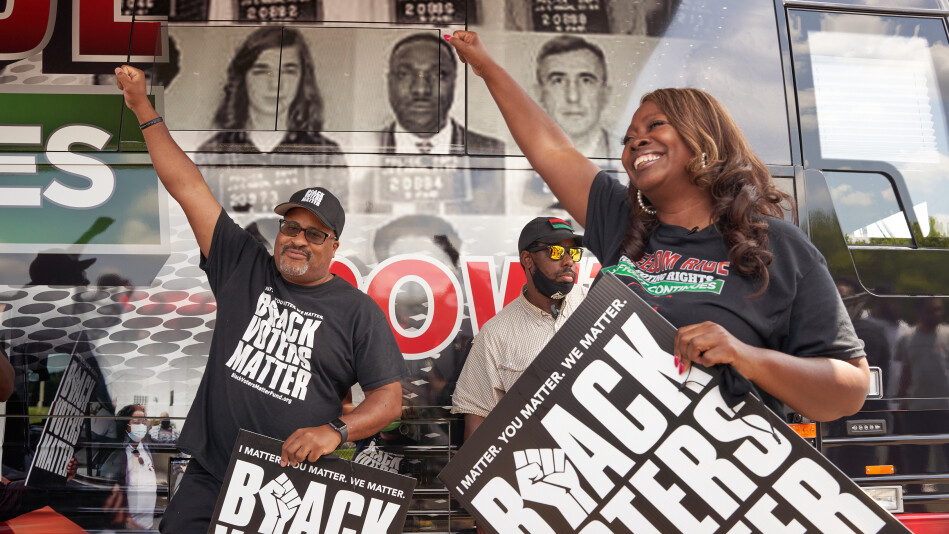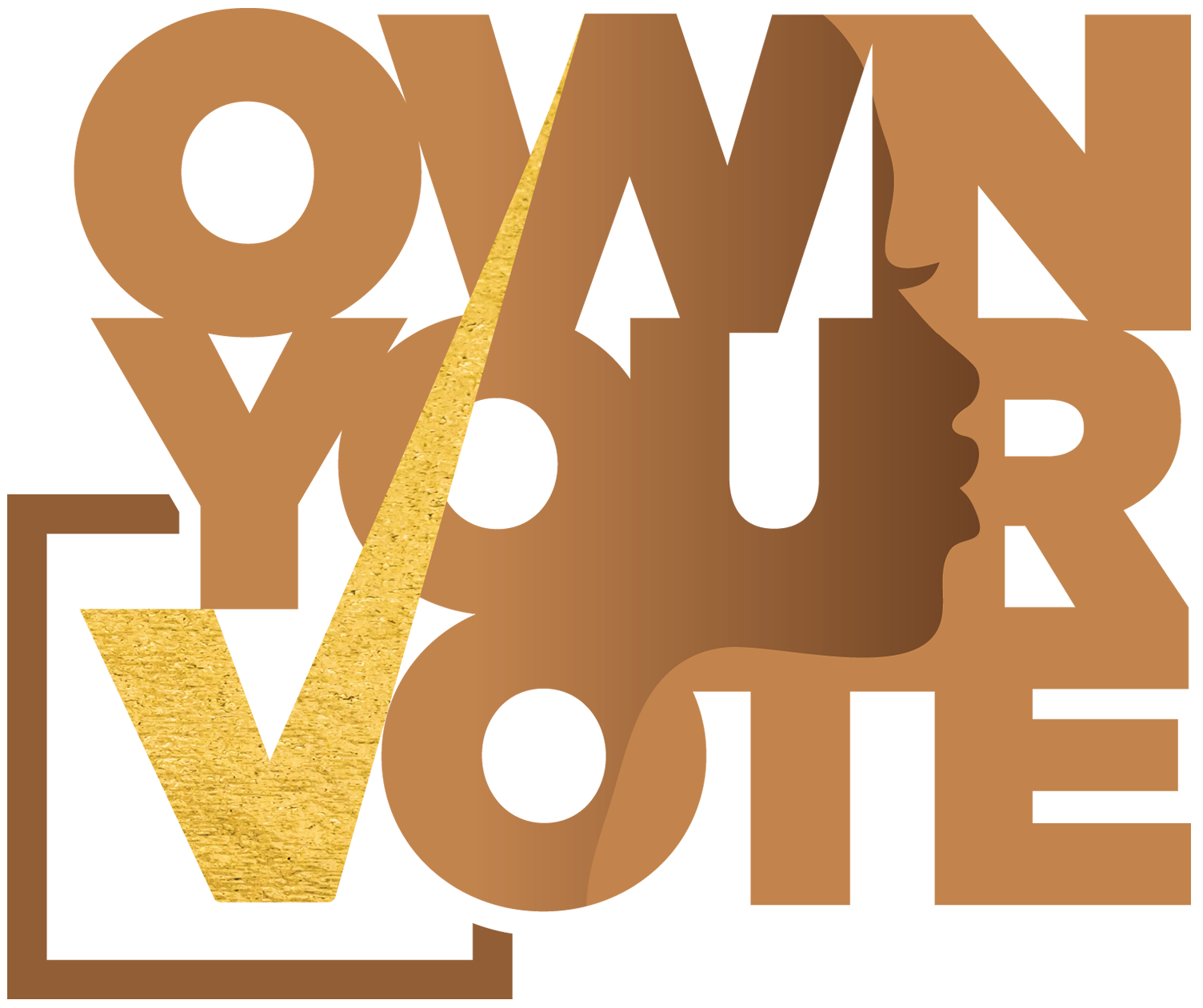
What Opportunities Are Being Created in This Moment of Fierce Opposition?
As a native of Selma, Alabama, voting rights advocate and social justice activist for more than 25+ years, I know that the journey to true freedom is long and hard, but it is also filled with love and joy. Love in the people you meet along the way and joy in the bright spots of opportunities of real change: The wins, the breakthroughs and the simple pleasure of spending time with people who believe in freedom and justice as much as I do. Sometimes we are so immersed in the challenges that lay before us that we forget to embrace the opportunities of the moments we're in. Reflecting, the process of re-centering ourselves in the work, and reaffirming why we do what we do, is critical to success in movement-building and social change.
Recently, I took a step back to reflect and ask myself the ever-important question: What are the opportunities that are being birthed in this era right now, and how do we take advantage of them for progress?
At this moment, America is being forced to look in the mirror at itself to see clearly who we are, and to determine who we really want to be. We are living not just in a traditional political system with two parties vying for power, but faced with a moment of truth and clarity for what we want our democracy to mean for future generations. Are we going to move forward toward a more inclusive democracy? Or will this nation be hell-bent on moving backwards to the less inclusive, more prejudiced confines of our former years?
Whether you consider yourself a conservative or liberal, in this moment we are ALL being called upon to ensure that democracy will be a core value of American governance. This will require everyone to shift outside the confines of partisan politics and rise above the white noise of media narratives and historic divisions fueled by racism, hatred and fear. It is time—finally—that America chooses what it means to be committed to ensuring a true democracy for the people and by the people.
Here are three ways to think about it:
Re-imagining democracy and power. I often ask audiences, What would America look like without racism, sexism and all the other -isms that divide and hurt us? In a moment when we are seeing gender inequity at an all-time high, never-ending racial tension, homophobia and other attempts to other-ize people, we must force ourselves to radically re-imagine the kind of America we desire and deserve. Every single system in our country can be re-imagined, from the U.S. Supreme Court to the Senate to our voting system. When we find democracy crumbling under the weight of oppression, hate and indifference, it is not only our responsibility but our duty to ask what needs to change and how?
For example, as the first Black woman appointed to the U.S. Supreme Court, Kentanji Brown Jackson, has already proven how profound of an impact she can have on the minority voice of the court, given her recent comments on oral arguments in Merrill v. Milligan, a case about Alabama's deliberate attack on the Voting Rights Act. For the sake of a democracy worthy of this label, we need new voices and new perspectives previously excluded from our national conversation. Rather than continuing to concentrate power in the hands of the few, America's political landscape should reflect our increasingly pluralistic and diverse society. A democracy is not just about who can win elections, but our willingness to evolve as a country to create a better version of ourselves.
Owning our power. Challenging moments in our world history often birth new leadership that takes up the mantle of justice and progress, emerging from those communities that have been deeply marginalized and oppressed. We are now entering an era that will center the political power of women as an asset and not a threat. The overturning of Roe v. Wade has prompted a renewed fight for women to have agency over their own bodies. We must deal with the unfinished business of gender parity in this country and space is being made for younger women—not just on the issue of Roe v. Wade but in political offices across the country—to step up and into those decision-making positions. Women make up the political majority of the nation yet remain under-represented in elected offices. We make up the majority of the workforce while also still taking on the majority of the work at home. The voices of women must be heard, and we are now faced with an opportunity to assert our leadership to influence policy and practice in this country. We must own this power by unabashedly running for office, supporting gender equality—and supporting each other.
Organizing our collective power. Movement-building cannot be done in a vacuum. In order to create the change we seek, we must work with others—building community and power for the sake of change and progress. In this moment, we are seeing the growth of multi-racial and multi-generational coalition groups rising to the forefront that is inclusive of Black, AAPI, Latinx and Indigenous people, women, LGBTQIA, low-income and various other marginalized groups working together around common causes to advance the greater good. Our shared experiences in this country, while they have often been demeaning and demoralizing, have also created safe spaces for us to nurture and grow our collective power. We can make powerful systemic changes through coalition work that is deeply committed to the democratic ideal of life, liberty and the pursuit of happiness for all. If we want to create a new America that is fueled by the beauty of our diversity, not the division that oppresses so many of us, it starts here.
As I head out on tour with Black Voters Matter, as part of our We Won't Black Down GOTV campaign to inform and engage with Black voters in the lead-up to the midterm election, I am thankful for these opportunities to reflect on my mission and join the tour with renewed purpose and hope. Because I know that it is not our politics that will save us, but our humanity.
A catalyst for change, a thought leader and social strategist, LaTosha Brown is currently a Democracy Fellow at Ash Center for Democratic Governance and Innovation at Harvard Kennedy School, co-founder of Black Voters Matter and founder of the Southern Black Girls and Women's Consortium. You can follow her on Twitter @MsLaToshaBrown.















